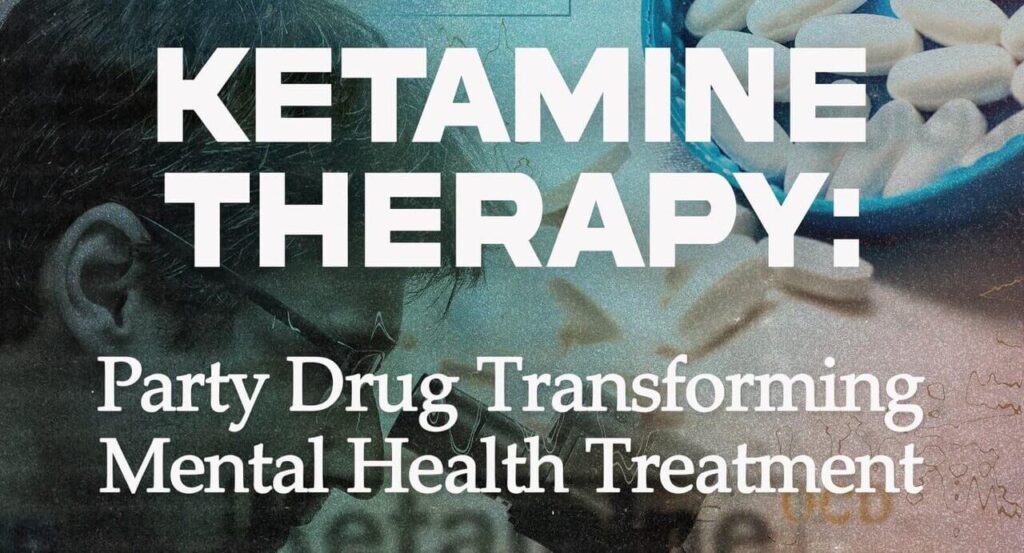NEWTON, Mass. (420CanNews.com) — In a groundbreaking initiative, benefits company Enthea has ushered in a new era for mental healthcare by offering Ketamine therapy as part of its employee health benefit plans nationwide. This landmark decision mirrors the shifting perception of Ketamine, once a notorious party drug known as ‘Special K,’ now emerging as a potent treatment option for individuals grappling with severe depression, anxiety, PTSD, and other mental health conditions.
Quick Insights: Enthea’s Health Plan
- What’s Happening: Enthea has introduced Ketamine therapy into its employee health benefits, focusing on mental health care.
- Background on Enthea: Established in 2022, Enthea is a public benefit corporation dedicated to providing access to safe and affordable psychedelic-assisted therapy, according to its website.
- Changing Views: Once known as a party drug, Ketamine is now gaining recognition as a potential lifesaver for individuals with severe depression.
- How It Works: Ketamine acts swiftly to promote neural growth by influencing glutamate, offering a quicker response compared to traditional antidepressants.
- Official Recognition: The FDA’s approval of Esketamine marks a significant shift in the mental health treatment paradigm.
- Making It Affordable: Enthea’s initiative is breaking down financial barriers, making Ketamine therapy more accessible to employees.
- Broader Implications: This step reflects a change in societal perceptions and aims to improve workplace mental health.
- Pioneering Change: Enthea is at the forefront of integrating psychedelic therapy into standard healthcare benefits.
- Looking Forward: Enthea’s initiative could pave the way for other psychedelics to be considered in mental health care strategies.
The allure of Ketamine therapy lies in its rapid antidepressant effects, a stark contrast to traditional antidepressants that may take weeks to manifest benefits. This swift action, often seen within hours, has fueled a surge in the establishment of Ketamine clinics and spurred rigorous scientific inquiry into its mechanisms.
Ketamine Therapy Side Effects & Benefits
Ketamine operates on the neurotransmitter glutamate to promote the regrowth of synapses, which can be damaged by stress and depression. It provides benefits, especially for depression and chronic pain, including its rapid action, often within hours compared to the weeks traditional antidepressants may take. A deep dive into the science of “Special K therapy” unveils a fascinating landscape where this substance, in controlled doses, orchestrates a neural resurrection. Conor Liston, a renowned neuroscientist from Weill Cornell Medicine, led a study showing how Ketamine reinvigorates brain circuitry to alleviate depressive symptoms in individuals subjected to chronic stress.
However, there are side effects to consider. The after-effects of ketamine infusion can include dissociation and elevated blood pressure, and there’s a potential risk for addiction or psychosis if misused.
Key Takeaways
| Benefits | Side Effects | Accessibility | FDA Approval | Mental Health Impact |
| Rapid antidepressant effects | Can vary; potential for addiction and psychosis | Increased with company initiatives like Enthea’s | FDA-approved for depression in conjunction with an oral antidepressant | Significant potential in treating severe depression and other mental health issues |
‘Special K Therapy’ Versus Traditional Antidepressants
Comparatively, ketamine therapy acts faster than traditional antidepressants and has been shown to help where other treatments have failed. This makes it a valuable option for those with treatment-resistant conditions. Traditional antidepressants usually require several weeks to take effect, working through serotonin and norepinephrine pathways, and their effectiveness can be unpredictable. In contrast, ketamine targets the glutamatergic system and has been documented to alleviate depressive symptoms within a much shorter timeframe—hours to days—which is particularly beneficial for patients with severe depression or those in immediate crisis who require prompt intervention.
Ketamine’s unique ability to promote the repair and growth of synaptic connections also provides a potential for lasting mental health benefits, which may not be achieved by traditional antidepressants. Its effectiveness in cases where other medications have failed makes ketamine a critical component in the evolving landscape of mental health treatment options.
The Role of FDA Approval
The U.S. Food and Drug Administration (FDA) approved a form of ketamine for use in treating depression in 2019, which marks a significant milestone in recognizing ketamine as a viable therapy option. As stated in their press release, “The U.S. Food and Drug Administration today approved Spravato (esketamine) nasal spray, in conjunction with an oral antidepressant, for the treatment of depression in adults,: exemplifying a monumental stride in mental health treatment innovations.
New York-based Enthea’s pioneering decision to weave “Special K therapy” into the fabric of employee health benefits is a powerful echo of this change. It’s a move that doesn’t just embrace FDA’s endorsement but also amplifies the conversation around mental health in the workplace, signaling a new era where treatments like Ketamine, once on the fringes, are now at the forefront of innovative healthcare strategies.
Real-World Application and Accessibility
The financial barrier is a significant deterrent for many seeking Ketamine therapy. However, Enthea’s initiative is a game-changer, making this innovative treatment more accessible to those who need it. This approach to mental health benefits reflects the growing recognition of Ketamine’s therapeutic potential.
Addressing the Questions on Ketamine Therapy
· Can it help with addiction? Studies suggest ketamine may help treat addiction by disrupting harmful patterns and behaviors.
· Can it make depression worse? In controlled settings, it’s primarily used to alleviate depression, but misuse outside clinical environments could potentially worsen mental health.
· Can it lead to addiction? There’s a potential for abuse; hence, it’s administered under strict medical supervision.
· Can it cause psychosis? In high doses or recreational use, yes; however, under medical supervision, the risk is minimized.
· Can it help with anxiety? Yes, ketamine for anxiety has shown promising results.
· Does it get you high? In a clinical setting, the doses used aim to minimize psychoactive effects while maximizing therapeutic benefits.
Help on the Horizon
As the narrative surrounding ketamine shifts from stigmatization to acceptance, its potential to combat severe depression is continually being explored. The availability of ketamine therapy as an employee health benefit is a testament to its growing legitimacy and a promising step towards a future where effective mental healthcare is within reach for many.
The burgeoning interest in ketamine’s therapeutic application, backed by compelling scientific evidence, and real-world initiatives like that of Enthea’s, highlights a pivotal moment in the evolution of mental healthcare. Ketamine’s tale is unfolding into a narrative of hope and healing for countless individuals, echoing the enthusiastic endorsements from the scientific community regarding its antidepressant effects.
Stay in the loop with more updates on not just mental health goals but also cannabis legislation and other related topics by subscribing to the best news aggregator in the cannabis industry, 420CanNews. Your inbox will thank you!
— Story Filed By 420CanNews Staff
Here’s More Information on the Topic:
Ketamine Therapy Providers Say They’re Running Out of the Drug
https://www.vice.com/en/article/dy355y/ketamine-therapy-shortage
Cracking the Ketamine Code
https://www.nimh.nih.gov/news/science-news/2023/cracking-the-ketamine-code
Understanding Long-lasting Ketamine Effects
https://www.nature.com/articles/d41573-023-00175-w


